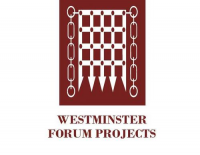Next steps for the reform of level 3 qualifications
Countdown to Reservations End Date

Event Details
Description
This one day online conference will examine the future of the level 3 qualifications system.
It will be an opportunity to discuss preparations for the delivery of a new suite of qualifications to sit alongside A Levels, T Levels and apprenticeships, following publication of the DfE’s Guide to the post-16 qualifications landscape at level 3 and below for 2025 and beyond, which contains information on approval cycles and future funding for level 3 alternative academic and technical qualifications.
The conference also takes place with IfATE expected to publish their Big Conversation report in March, which will examine the breadth of the skills system, and the extent to which it supports national priorities and individual progression.
Stakeholders and policymakers will assess reforms to the approval process for alternative academic and technical qualifications in light of the submissions from awarding bodies, evaluating whether the changes effectively meet the needs of the labour market and help students develop the skills required for the future.
Delegates will also look at the alignment of ongoing level 3 reforms with the wider qualifications landscape, including at level 2.
They will discuss the impact of these reforms on students - particularly those from disadvantaged backgrounds, and what may be needed to provide clarity on the range of options available from 2025, including for adult learners and those with additional needs.
We are pleased to be able to include keynote contributions from Louise Wright, Deputy Director, Technical Education & Qualifications Reform, Department for Education; and Karl Anderson, Head of Level 2 and 3 Policy, Institute for Apprenticeships and Technical Education.
Sessions in the agenda focus on:
• qualification reform at level 3: policy priorities for delivery of reforms - implementing an integrated regulatory process - outlining progression criteria - adapting to new approvals processes
• rollout: next steps for implementing level 3 reforms - evaluating system funding and capacity - support for providers to adapt to reform - assessing timelines for delivery
• regulation: assessing quality and progression criteria - simplifying funding approval cycles - minimising overlap with A levels and T Levels - implementing an integrated approvals process
• qualification design:
◦ aligning reform with the wider qualifications landscape
◦ provision of varied options, including a blended approach to academic and technical qualifications
◦ best practice in instilling quality and standards
• adapting to reform: clarity on student options - support for providers and awarding bodies - provision for mature students and individuals with additional needs - preparation for delivery in 2025
• progression routes:
◦ the role of reformed Alternative Academic Qualifications (AAQs) and technical qualifications in preparation for higher education and skilled employment
◦ opportunities for employer partnerships - implementing guidance on post-qualification pathways
• labour market: providing clarity and meeting the needs of employers - aligning reform with local and national skills gaps - latest thinking on the role of employers in the skills system.
The conference will be an opportunity for stakeholders to consider the issues alongside key policy officials who are due to attend from DBT; DfE; Department of Education, NI; DWP; Department for the Economy, NI; IfATE; MOJ; and the Welsh Government.

